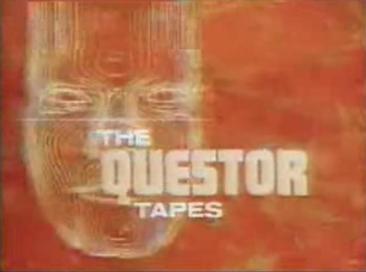I'm the last person who needs to have The Questor Tapes fansplained to me, thank you very much. Seen it countless times, have the novelization on my shelf, own the DVD, had it on VHS for decades before I had the DVD, implicitly referenced it more than once in my professional Star Trek fiction.
The links between Data and Questor are extremely obvious, but the links to Xon are there also, because Xon was a young science officer eager to explore his emotional side and gain a greater understanding of his human crewmates. Given that Picard, Riker, and Troi are obviously based on Phase II's Kirk, Decker, and Ilia, it makes no sense to deny the fact that Data fits into that ensemble in the exact same way that Xon would have fit into his ensemble. And Xon and Questor overlap enough in concept that it's strange to treat them as mutually exclusive, rather than being variations on a theme Roddenberry explored more than once.
Heck, Questor himself was Roddenberry's third try at the Gary Seven premise (after the standalone half-hour pilot script and the Trek-episode backdoor pilot), just substituting an android for an augmented human. Roddenberry's planned series would've had Questor using advanced alien technology to help humans survive and advance, just like Gary Seven would have in the planned Assignment: Earth series. Roddenberry created Questor by combining elements of Gary Seven with the distinct concept of an android hero. So it seems disingenuous to deny that he could've created Data by combining elements of Questor and a different character.
This is how creativity usually works -- not by copying things "100%," but by combining different ingredients into a new mix. Star Trek itself was influenced by precedents as diverse as Horatio Hornblower, Wagon Train, and Forbidden Planet.




 ) the potential is also there.
) the potential is also there.